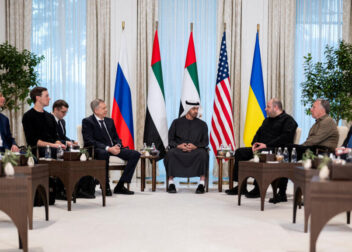Jaishankar Warns: India Will ‘Hunt Terrorists Deep into Pakistan’ if Threats Persist
India’s External Affairs Minister S. Jaishankar issued a stern warning to Pakistan on June 10, 2025, declaring that India will pursue terrorists across borders, even “deep into Pakistan,” if cross-border terrorism persists. Speaking to international media during a Europe tour, Jaishankar underscored India’s zero-tolerance policy toward terrorism, particularly in the wake of the April 2025 Pahalgam terror attack in Jammu and Kashmir, which claimed 26 civilian lives. This bold stance reflects India’s evolving security strategy and signals heightened tensions in India-Pakistan relations.
The minister’s remarks came during interviews with Politico and Le Figaro while attending EU trade talks in Brussels. Jaishankar emphasized that Pakistan continues to harbor and train “thousands” of terrorists, describing it as a state deeply entrenched in using terrorism as a policy tool. He pointed to Operation Sindoor, launched in May 2025, as evidence of India’s resolve. The operation targeted terror camps in Pakistan and Pakistan-occupied Kashmir (PoK), striking nine complexes, including sites in Bahawalpur and Muridke, in response to the Pahalgam attack. The four-day conflict ended on May 10 after bilateral talks between military officials, but Jaishankar warned that the root cause—Pakistan’s terrorism support—remains unaddressed.
India’s military response during Operation Sindoor demonstrated its capability to conduct precise airstrikes, with Jaishankar noting that eight major Pakistani airfields were disabled, a claim verifiable through satellite imagery. The operation marked a shift from India’s earlier restraint, signaling a proactive approach to counter cross-border threats. However, the conflict saw tit-for-tat aerial engagements, with Pakistan claiming to have downed Indian fighters, including a Rafale. While India has not publicly detailed its losses, experts suggest the operation showcased both its military strength and the risks of escalation in a nuclear-armed region.
The Pahalgam attack, which triggered this response, has galvanized public and political sentiment in India. Posts on X reflect strong support for Jaishankar’s stance, with users praising the government’s zero-tolerance approach while expressing concerns about potential escalation. The minister’s comments also resonate internationally, with the UN Security Council reportedly calling for accountability against terrorism. Jaishankar’s broader diplomatic engagements in Belgium, France, and the EU during his June 9–14 trip emphasized India’s commitment to global partnerships while reinforcing its anti-terrorism resolve.
Pakistan has consistently denied sponsoring terrorism, framing India’s actions as aggressive. However, Jaishankar dismissed this, asserting that the conflict is not a bilateral dispute but a fight against terrorist outfits and their leadership. He also addressed China’s role, urging Beijing to avoid ambiguity in combating terrorism given its ties with Pakistan. This comes amid strained India-China relations since the 2020 border clash, though discussions on resuming direct flights signal cautious engagement.
The Supreme Court and India’s Chief of Defence Staff, General Anil Chauhan, have supported the government’s firm stance, with the latter noting that tactical adjustments during Operation Sindoor mitigated early setbacks. Yet, challenges remain. Sustained cross-border terrorism could strain India’s resources, and any miscalculation risks broader conflict. Experts highlight the need for diplomatic channels to complement military measures, noting that the May 10 ceasefire was a rare instance of bilateral dialogue succeeding.
Jaishankar’s warning underscores India’s shift toward a muscular security policy, prioritizing preemptive action over passive defense. As the Global South advocate, India also seeks to rally international support against terrorism, framing it as a universal threat. The minister’s remarks in Marseille at the Raisina Mediterranean Dialogue on June 12–13 further amplified this message. For now, India remains vigilant, with the RBI and markets bracing for economic ripples from regional instability. The path forward hinges on balancing retribution with restraint to avoid a wider Indo-Pak conflict.

